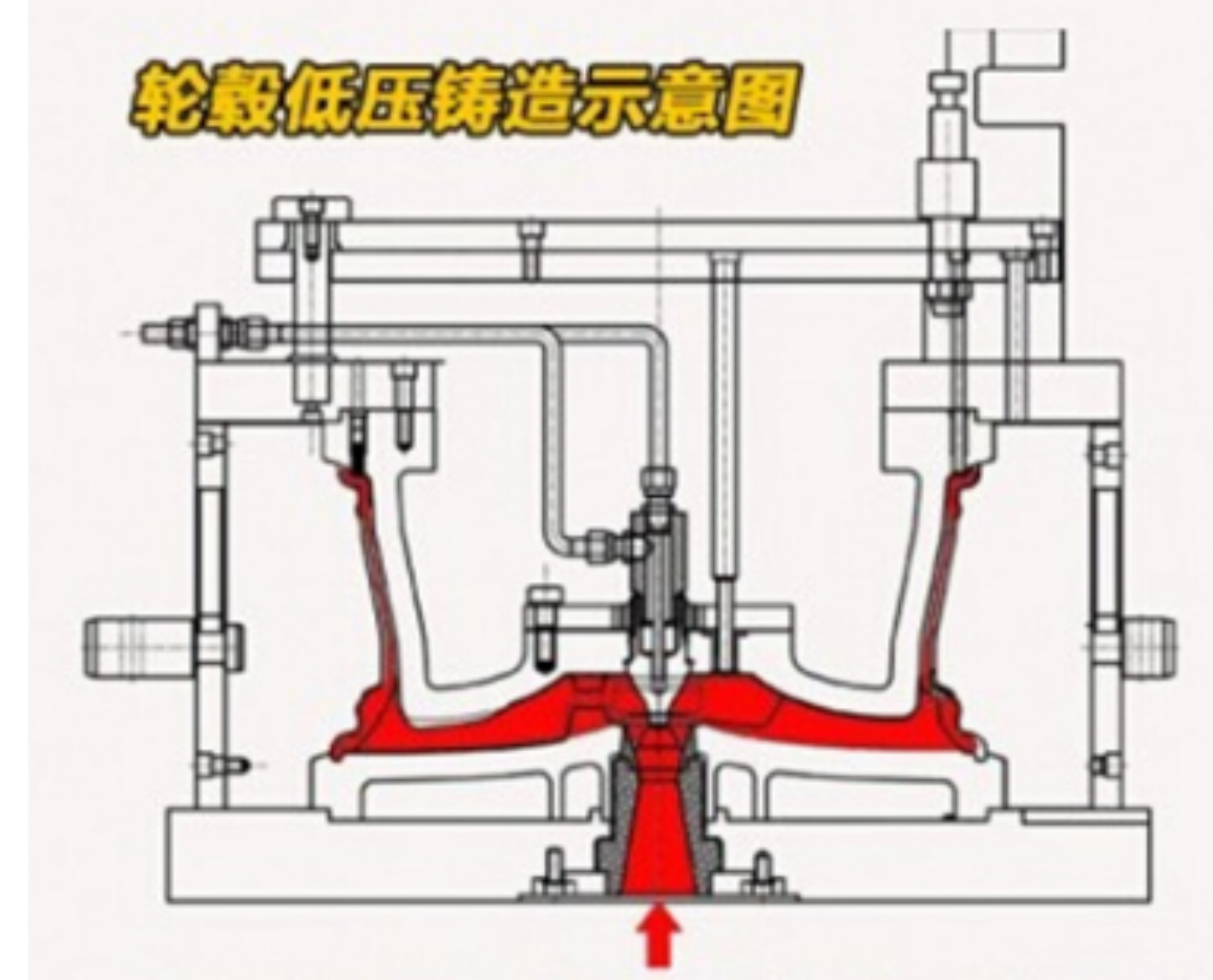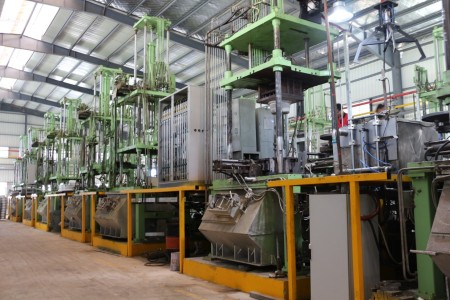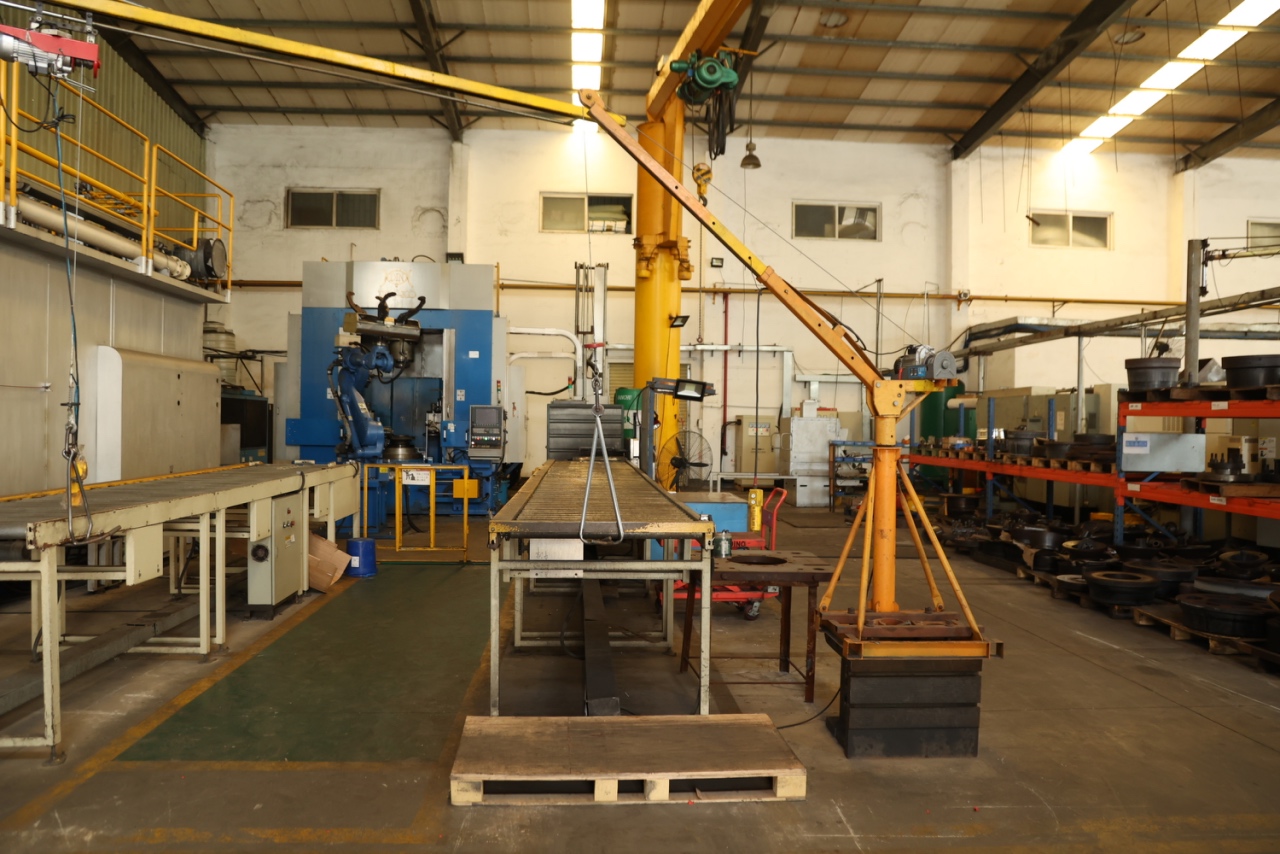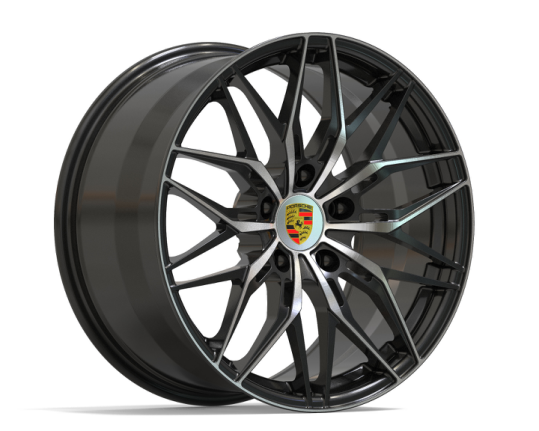The production of wheel hubs on the market is roughly divided into: gravity casting wheel, low pressure cast wheel,flow formed wheel, and forging wheel, which refers to the process of injecting molten metal into the mold under the action of the earth's gravity, also known as gravity casting. Gravity casting is the most primitive casting with low technical. But this time, let's discuss and compare other new wheel manufacturing technology: low pressure casting, flow formed casting, and forging.
Production Process:
Low pressure casting wheel: The molten aluminum enters the mold under pressure, and the molten aluminum solidifies and crystallizes under pressure. The whole process is carried out mechanized, so the technological level is very stable. Now most car manufacturers will specify the use of low pressure casting to ensure the quality of the wheel. Low pressure casting wheels are much cost-effective wheels.


Flow formed wheel: The rim part is rotated and stamped on the basis of low pressure casting, which changes the internal structure of the metal at the rim part, and the molecules are arranged in a fibrous shape with a higher density. Compared with ordinary casting, it has higher mechanical properties and performance. For higher strength and better toughness. The flow formed rim has a thinner cut surface, and the overall weight of the rim is thus reduced, which is the most direct technical advantage of the flow formed process. Best flow formed wheels can work together with casting and forging.
Forging process: Forged wheels are manufactured by forging, which removes internal pores and cracks to the greatest extent possible. And it is often used in the form of multiple forging, which can ensure the removal of material defects in all aspects, increase the internal stress of the material, the toughness will be better, and the impact resistance and tear resistance at high speeds can be greatly improved. Forged alloy wheel manufacturers can make one piece forged wheels or two piece forged wheels.

For comparison of mechanical properties, compare three 19X8.5J wheels made by low pressure casting, flow formed casting and forging:
Low pressure | Flow formed | Forging | |
Material | A356.2-T | A356.2-T6 | 6061-T6 |
Yield Strength | 152MPa | 200MPa | 276MPa |
Tensile Strength | 220MP | 290MPa | 310MPa |
| Elongation | ≥7% | ≥10% | ≥12% |
To sum up, the three process hubs are summarized as follows:
Low pressure casting: the current mainstream production process of automobile wheels. Affordable price, stable product quality, suitable for general modification users.
Flow formed casting: Lightweight, while the rim strength is better than low pressure casting. Cost-effective! It is suitable for users who pay attention to control and lightweight modification. The current market continues to gain popularity.
Forging: The most high-end production process, the product is light in weight and high in strength. Price, high performance! It is suitable for refit users who pursue the ultimate performance and have personalized customization needs. The advantages of forged wheels are high strength, higher safety, strong plasticity, light weight, good heat dissipation capacity, and fuel saving. At the same time, the forged wheel hub is also the most advanced wheel hub manufacturing method. The strength of this kind of wheel hub is about 1 to 2 times larger than that of the cast wheel hub, and 4 to 5 times that of the general iron wheel hub, so it is more sturdy, impact-resistant, tough and fatigue-resistant. They are also significantly stronger than cast wheels, and are not easy to smash and break. The only disadvantage is that it is expensive and has a long production cycle.

Jwheel products cover 10-26 inch aluminum alloy wheels, including gravity casting, low pressure casting, flow formed casting, and forging products. Our wheels have been thoroughly tested to ensure they're fit for purpose.In the after market there are many wheels with lower price manufactured in small batches. The finished product can look the same, but with less expensive materials and processes, it is often heavier and of weaker construction, that is more prone to cracking when encountering potholes. At Jwheel we don't sell damaged cracked or buckled wheels and, with our new powder coating facility, we're able to provide you with OEM wheels in good condition at a fraction of dealer price. And it has tremendous ability on aluminum alloy wheel design and provides one-stop services from design to production, equipped with aluminum alloy furnace, casting line, forging machine, flow forming facility, automatic painting line, helium leak detector, automatic balance check system, etc.. With these advanced technology, Jwheel’s production capacity now has exceeded 1.5 million wheels per year.
(For more information, just go to the website: https://www.jjjwheel.com)